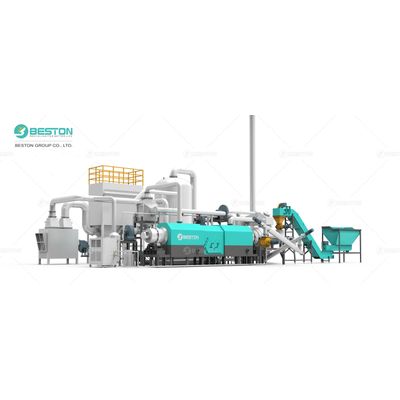

- Home
- Companies
- Beston Group Co., Ltd.
- Articles
- Economic Returns from Small-Scale ...

Economic Returns from Small-Scale Charcoal Making Machine
The economic viability of a small charcoal making machine begins with an assessment of capital expenditure and recurring costs. Compact units demand relatively low initial investment compared to industrial-scale plants, making them accessible for individual entrepreneurs and small businesses. Operating costs encompass feedstock acquisition, energy input for pyrolysis, and routine maintenance. Efficient thermal insulation and optimized combustion cycles reduce fuel consumption, directly enhancing net profitability. The payback period for a well-managed small charcoal making machine often falls within months, contingent on feedstock availability and market pricing.
Feedstock Versatility and Sourcing
The choice of raw material significantly impacts economic returns. Small charcoal making machine can process a variety of biomass, including sawdust, coconut shells, rice husks, and wood chips. The flexibility to utilize local, low-cost residues reduces procurement expenses and supports a circular economy model. Consistent feedstock supply ensures continuous operation, stabilizing production volumes and enhancing market reliability. Additionally, the ability to convert agricultural or forestry waste into marketable charcoal elevates both sustainability and profitability.
Production Efficiency and Output Quality
High conversion efficiency is central to maximizing economic returns. Modern small charcoal making machines incorporate controlled pyrolysis chambers and automated airflow regulation, ensuring uniform carbonization. Enhanced carbon content, low moisture, and uniform particle size increase product market value. Efficient energy use reduces losses from incomplete combustion, while the modular design allows incremental scaling of output without significant capital injection. Consequently, operators achieve a balance between production volume and product quality that is attractive to diverse consumer segments.
Market Potential and Revenue Streams
The market for charcoal spans domestic, commercial, and industrial applications. Households, restaurants, and small-scale manufacturing units provide consistent demand. Value-added products such as charcoal briquettes or activated carbon further expand revenue opportunities. The relatively small footprint and mobility of a small charcoal making machine allow operators to adapt to local demand patterns and niche markets. Strategic marketing and consistent product quality reinforce customer loyalty, stabilizing long-term revenue streams.
Operational Scalability and Maintenance Considerations
Flexibility in scaling operations contributes to sustained economic advantage. Small charcoal making machines are modular, enabling gradual expansion aligned with increasing market demand. Routine maintenance and timely replacement of wear components minimize unplanned downtime, preserving output and revenue consistency. The low complexity of mechanical and thermal systems reduces dependency on specialized labor, further controlling operational expenses.
Conclusion
Economic returns from a small charcoal making machine derive from a combination of low initial investment, versatile feedstock utilization, efficient production, and strong market potential. By leveraging high-quality output, energy-efficient operation, and scalable capacity, operators achieve attractive profit margins while contributing to sustainable resource use. Strategic management of costs and production, coupled with market-oriented product diversification, positions these compact machines as a viable and profitable solution for small-scale entrepreneurs.
